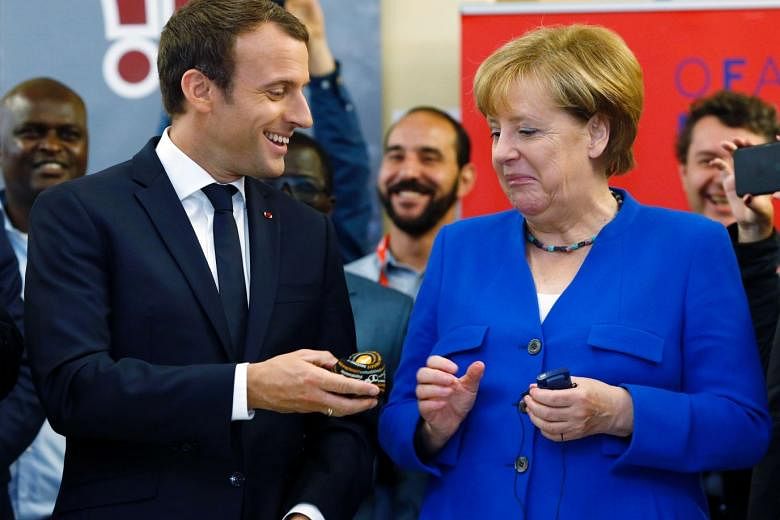The sharp slowdown in the migrant crisis since 2015, President Emmanuel Macron's defeat of anti-European Union populist Marine Le Pen in France's election this year, and the likely re-election of German Chancellor Angela Merkel have reinvigorated optimism that Europe has survived yet another round of challenges. Not so fast. There will be many more problems to manage in coming months, and the current confidence is unlikely to last long.
First, the entrance onto the stage of the youthful, energetic Mr Macron has made France the envy of others across Europe hungry for a new generation of leaders in their own countries. But the most remarkable outcome of France's 2017 elections was the scale of defeat for the centre-right and centre-left parties. Pro- or anti-EU, French voters want change, and Mr Macron must deliver it with a legislature in which 70 per cent of deputies are serving in government for the first time. If inexperience undermines his ability to revitalise France's economy and energise its labour market, all those fresh faces will be much less welcome.
More broadly, he needs to put France's fiscal house in order before sceptical Germans will work with him towards EU fiscal union, banking union, and other needed EU reforms. Mr Macron quickly lost 10 points from his early approval rating as citizens look past the easy smile and confident speeches towards social spending cuts. And as his predecessors discovered, labour reform, no matter how skilfully presented, draws labour unions into the streets.
Then there is Italy, a country that remains in political stalemate. The next elections, likely in the first half of 2018, are increasingly likely to produce either another fragmented government that can't advance much-needed political and economic reforms or a Five Star Movement-led government that's openly hostile to the EU.
The migrant story continues to reshape Italy's political landscape. An EU deal with Turkey has sharply limited the flow of desperate people across the Aegean towards Greece, but arrivals in Italy, mainly by boat from Libya, increased 20 per cent from 2015 to 2016. For the first half of this year, just 9,000 migrants reached Greece, and 4,000 arrived in Spain, while Italy has now taken in over 90,000. Italian anger is rising as France and Austria seem more interested in tightening their borders with Italy than with sharing even a small part of its burdens. An EU quota which mandates that each EU member takes in refugees to ease pressure on others is not being enforced.
In particular, the Visegrad countries of Eastern Europe - Poland, Hungary, the Czech Republic and Slovakia - were expected to accept about 11,000 refugees as part of this system. Slovakia and the Czech Republic have taken in 28 people, as of this writing, while Poland and Hungary have accepted zero. This is not the only source of defiance from the East. Hungary's Premier Viktor Orban has fully embraced the term "illiberal democrat" as he battles to consolidate political control in his country, and Poland's right-wing government is still working on legislation that would allow legislators to fire the country's judges and replace them with political cronies. The EU has threatened to provide less money for these countries in the next EU budget, but nothing credible has yet been done to force them to comply with EU rules.
If all that weren't enough to worry about, there is also the quest of Turkey's President Recep Tayyip Erdogan to give himself Putin-like powers in his country and the problems being created between Turkey and the EU. Mr Erdogan has discovered that public hostility towards Europe boosts his popularity at home, and a re-election bid next year is sure to create more friction with Germany and others. It could also jeopardise Mr Erdogan's deal with the EU that keeps huge numbers of refugees in Turkey in exchange for European cash and various political promises. That deal will probably hold, because it works for both sides. If it doesn't, Europe could face another migrant crisis, reviving populist anger across the continent.
Finally, add troubles with US President Donald Trump, provocations from Russian leader Vladimir Putin, and the high-stakes complexities of Brexit negotiations. Dr Merkel remains a force for stability, and Mr Macron may energise reform in France and the EU more broadly, but it's clear that EU leaders will have their hands full for the rest of this year and beyond.
- The writer is president of Eurasia Group and author of Superpower: Three Choices For America's Role In The World.

